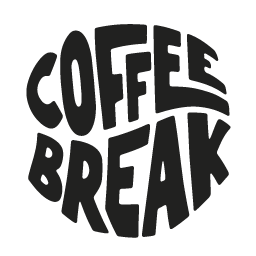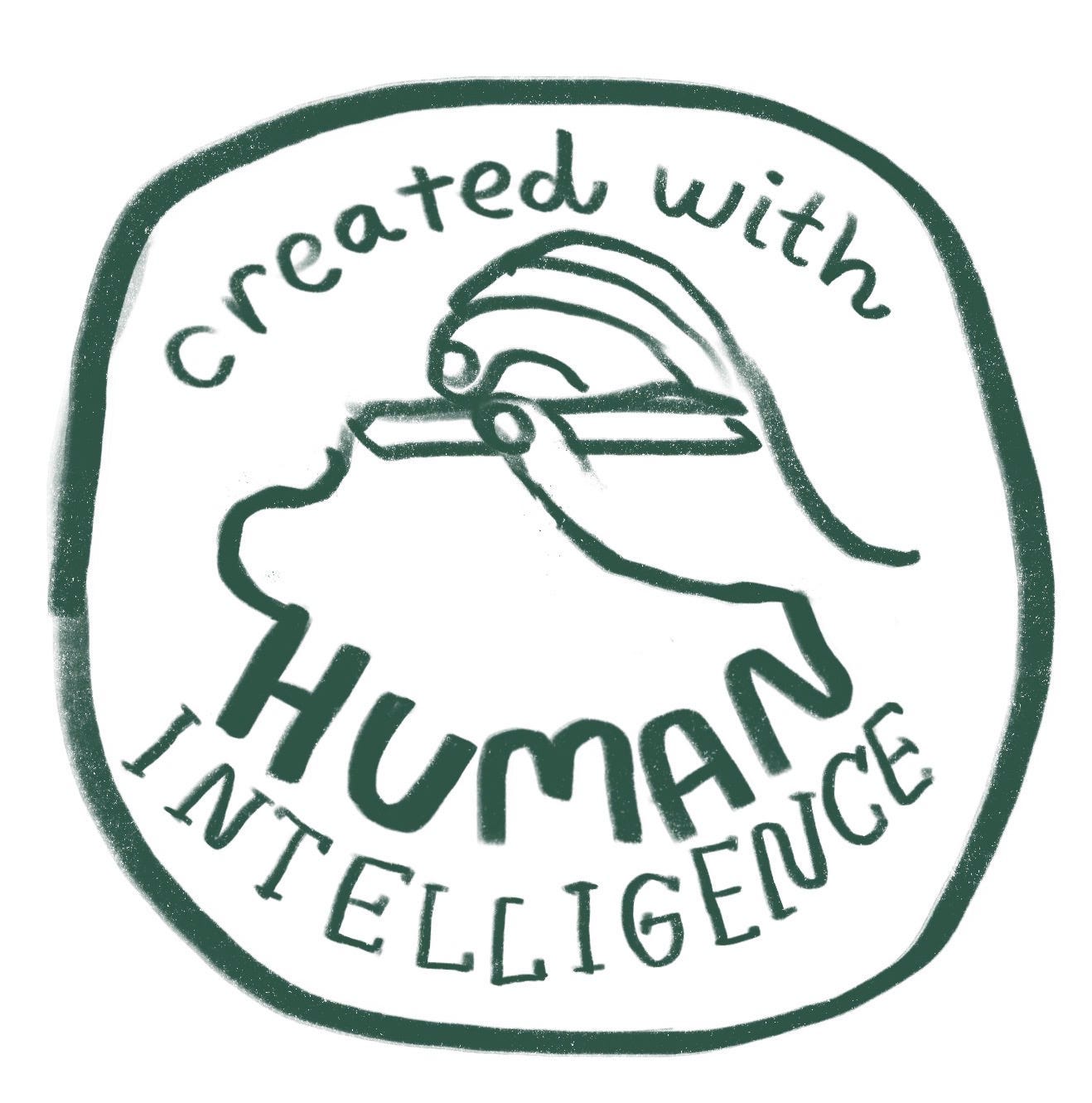Exploring Life and Literature
Dear friends,
This week, I am excited to have
share her take on that magical elixir, coffee. Hosting these guest essays broadens my own perspective on the topic while continuing to build a community around the love of life and literature.Born and raised in Slovakia, Jana has lived in the UK for the past 19 years where she works in management for a logistics company. She dreams of someday leaving the corporate rat race to live an unconventional life of reading, writing, and traveling the world. In her free time she loves to write and spends time in the gym to build physical and mental discipline, a trait much needed for writers. Jana is a proponent of life-long learning and reading affords her that opportunity. As a lover of behavioral science and social psychology she recommends the works of Adam Grant.
Please enjoy Jana’s essay below.
Coffee, Books, and the Art of the Break
Since mid-2023, every weekday, I'd grab my absurdly sweet latte (four pumps of caramel, because, small joys matter, even if they’re unhealthy choices) and pull out whatever book I was reading that week.
Not just for a caffeine boost but for a small, intentional escape. What you need to understand is that taking a break at work is NOT something I would do. Usually, I’d work through breaks, eat at the desk, grab a coffee, and gulp it down like some desperate soul finally stumbling on water on a scorching afternoon. A work culture had convinced us that stopping, even for fifteen minutes, was somehow a moral failure.
During those coffee breaks, I could finally pause, breathe, and, in a rare moment of clarity, ask myself: What do I really want from my life?
What's fascinating about coffee culture historically is how it's always been linked to intellectual and creative rebellion.
For centuries, coffee has been more than a drink; it’s been a tool, a reason, and an excuse to gather, exchange ideas, and reflect. Coffee’s origins trace back to 15th-century Ethiopia, where, as the legend goes, a goat herder named Kaldi noticed his goats acting unusually energetic after eating coffee cherries. Whether or not the myth of Kaldi’s “dancing goats” is fact or tale, coffee has long been a symbol of connection and discovery, shaping history, culture, and society. Thinkers, poets, scholars, and journalists have gathered in coffeehouses since the first ones opened, creating places for heated debates, gossip, deep conversation, and quiet reflection.
Today's corporate coffee breaks might seem far removed from those revolutionary roots, but they're serving a similar purpose for many of us: creating space for questioning and reimagining our relationship with work, socialising with work friends or claiming the time to read.
When I first started deliberately stepping away from my desk with a book and coffee in hand, I felt that familiar twinge of productivity guilt: shouldn't I be using this time to catch up on emails or prep for my next meeting?
At the time, my idea of success was constant acceleration—anything less than relentless forward momentum felt like a failure. But that mindset, I learned, wasn’t just mine; it’s a cultural expectation ingrained in us, and one that’s difficult to break free from.
Looking back, burnout was inevitable.
The thing about burnout culture is that it's not just about working too much—it's about internalising the idea that you should always be working. As burnout researcher Christina Maslach puts it in The Truth About Burnout it's a "toxic mix of high demand, low control, and a lack of balance." We've normalised this to the point where taking an actual break feels almost transgressive. And that toll doesn’t go away with a weekend or time off; it needs real, intentional breaks and a shift in how we think about our time.
Those "coffee breaks" weren't just moments to refuel - they were tiny acts of resistance against an always-on work culture. I wasn't the only one feeling this way. Look at how, after the pandemic, the Quiet Quitting spread like wildfire or how millions joined the Great Resignation, all of us somehow realising simultaneously that we'd given too much of ourselves to work.
When Anthony Klotz named the Great Resignation, he tapped into something deeper than just people switching jobs - he identified a mass response to work cultures that don’t prioritise well-being.
Maybe that's why these movements resonated so deeply. In a way, these shifts reflect a need for those precious minutes with a coffee cup. They offer us permission to pause, to breathe, and to imagine a different way of working.
Books as Breaks—and Teachers—and a Lifeline
Burnout recovery wasn’t going to happen by accident; it would take deliberate, structured rest, something I wasn’t very good at. And whenever I don’t have the answers or don’t know much, I turn to books. To no surprise, I started with books on burnout. I started with Can't Even: How Millennials Became the Burnout Generation by Anne Helen Petersen to first understand what I am dealing with here. Followed by Burnout: The secret to solving the stress cycle by Emily Nagoski and Amelia Nagoski to work through it—it’s still work in progress. There are no quick fixes, or at least, I have not found them.
The shift from seeing these breaks as "stolen time" to viewing them as intentional investments in me and my well-being didn't happen overnight. It started with reading coaching books like Laura Whitworth's "Co-Active Coaching" and Julie Starr’s “The Coaching Manual”, during these pauses, which helped me recognise the beliefs that no longer served me and they also helped to transform the beliefs I held about what’s possible for me.
Oliver Burkeman's "Four Thousand Weeks" hit particularly hard during one of these breaks, especially his observation that "The real problem isn't our limited time. The real problem—or so I've come to believe—is that we've unwittingly inherited, and feel pressured to live by, a troublesome set of ideas about how to use our limited time."
His philosophy on time management shifted my mindset from squeezing out every drop of productivity to focusing on what’s meaningful. This book, like so many others, was helping me unlearn the rush of corporate life.
My dad’s influence lingered in the background of these reflections. He was a self-made entrepreneur; someone I admired for his ability to turn passion into a thriving business. He was a hard worker, certainly, but he also knew how to be intentional with his time. Growing up, I spent every Saturday morning in his office, sipping small, rich cups of coffee with him. I’d watch him tackle his work with dedication, yet he’d pause, savour his coffee, and discuss life and music (mainly his favourite, Pink Floyd) with me. Those Saturdays are some of my favourite memories and, in many ways, where my love for both coffee and work began.
The Art of the Coffee Break—and the Path Forward
That’s where my journey with “coffee breaks” led me: to a new kind of break, not just from work but from the work culture I’d known. Coffee itself, I learned, isn’t a remedy for burnout; if anything, it fuels it. Caffeine raises heart rates, sharpens focus, and, ironically, keeps us on the treadmill of constant “doing.” But it became something more for me—a small ritual that provided so much-needed meaning to carry me through exhaustion and resentment that burnout ignited.
Here's what most of us don't realise about breaks: they're not just pauses in productivity—they're acts of self-preservation.
Research published in the Journal of Applied Psychology shows that breaks, particularly those involving activities we genuinely enjoy, don't just refresh us—they're crucial for maintaining long-term engagement and preventing the kind of deep exhaustion that leads to quiet quitting or outright resignation.
The Great Resignation, as Anthony Klotz observed, isn't just about leaving jobs—it's about "people prioritising their well-being and purpose over traditional career paths."
Alex Soojung-Kim Pang argues in "Rest: Why You Get More Done When You Work Less" that deliberate rest isn't just beneficial—it's essential for creative work.
Because we're NOT always behind (despite what our burnout culture suggests), we should not feel like we're always catching up, and we DON'T always need to optimise every second.
The breaks don’t need to be seen as luxuries.
These daily coffee breaks gradually evolved into something bigger: a framework for building my newsletter, Coffee Break—a space where I could write about the intersection of intentional rest, meaningful work, and the books that help us navigate between the two. It's become clear that I'm not alone in this journey.
But maybe that's the point. Sometimes, the path to changing our lives doesn't require dramatic gestures. Sometimes, it starts with something as simple as a cup of coffee, a good book, and the courage to take a real break.
These small rituals matter more than we think. They're not just breaks from work—they're the foundation for building whatever comes next.
You can check out more of Jana’s writing at her publication.
Beyond the Bookshelf is a reader-supported publication. If you have the means and desire, please consider upgrading to a paid subscription.
Until next time…












You can tell how entrenched burnout culture is when we need to make an intentional effort to not feel ashamed of taking a coffee break!
Excellent essay Jana! So true, the corporate world seeds the expectation that every employee should be doing something all the time, but that’s not effective and as you unfortunately found out, it’s damaging. I’m glad you found a way back from burnout and are on a better path now 😊